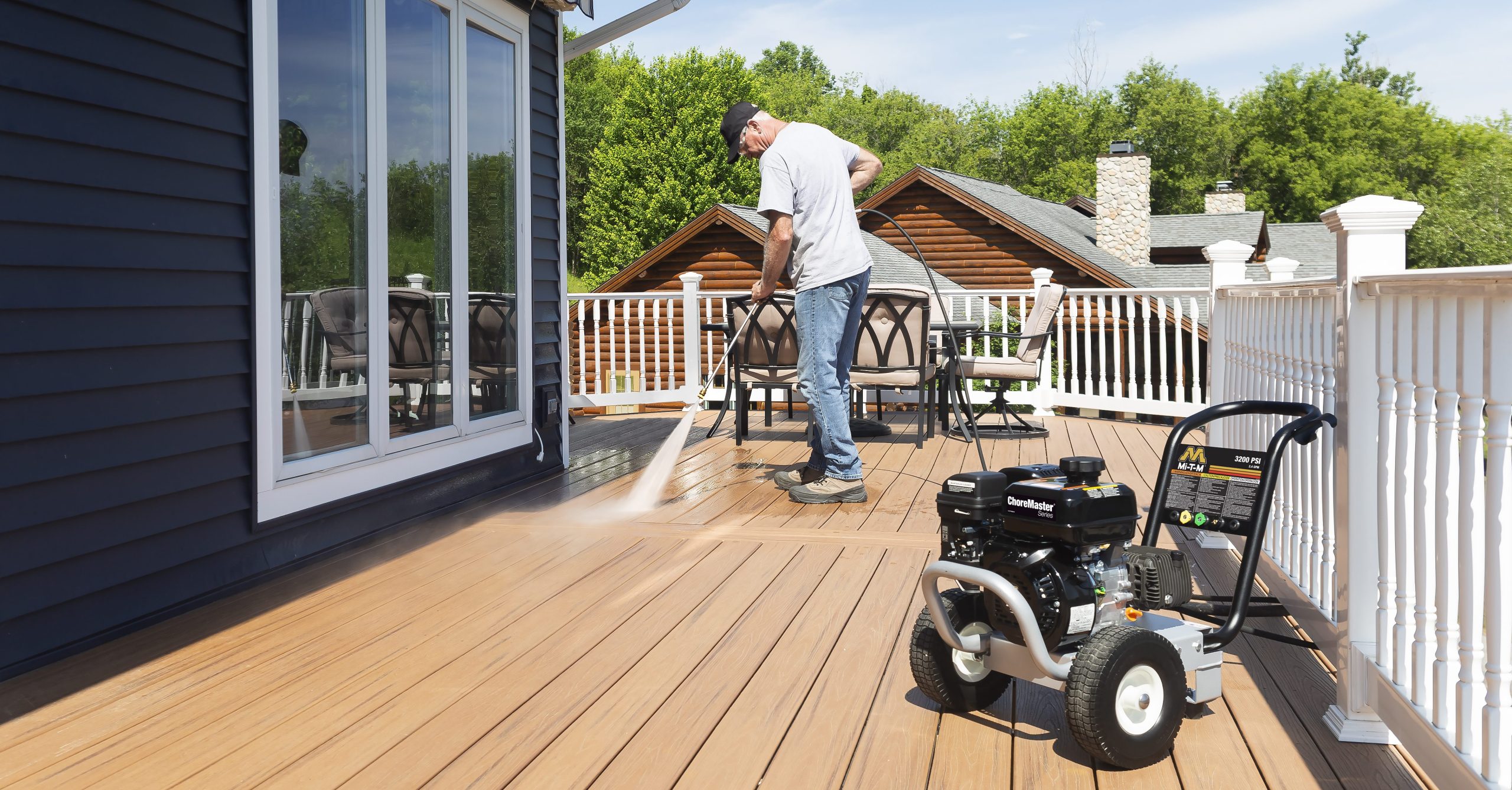
When it comes to keeping your property clean, power washing is a game-changer. But did you know not all power washers are the same? One of the most important distinctions is whether the machine uses cold water or hot water — and that choice can dramatically affect the results. 🔥❄️
If you’ve ever wondered which is better for your cleaning project, you’re not alone. Both cold and hot water power washers have their strengths and weaknesses — and choosing the right one depends on what you’re cleaning, how often, and what type of grime you’re dealing with.
In this guide, we’ll dive into the key differences, benefits, and drawbacks of each system, so you can make the best choice for your home, business, or power washing service. 🧼
🧊 Cold Water Power Washing
✅ Pros:
- More Affordable
- Cold water power washers are generally less expensive than their hot water counterparts — both to purchase and maintain.
- Great for homeowners and small businesses with basic cleaning needs. 💸
- Lightweight and Portable
- These machines tend to be smaller and easier to move around.
- Ideal for DIYers or mobile services that need to travel frequently.
- Sufficient for Basic Cleaning
- Excellent for rinsing dirt, dust, pollen, and light grime from:
- Siding
- Fences
- Patios
- Vehicles
- Perfect for routine maintenance without the need for deep degreasing.
- Excellent for rinsing dirt, dust, pollen, and light grime from:
- Less Complex Equipment
- Fewer parts mean fewer things can break. Maintenance is easier and cheaper.
- No heating element, no fuel cost. Simpler all around. 🛠️
❌ Cons:
- Less Effective on Grease and Oil
- Cold water struggles with stubborn substances like:
- Motor oil
- Chewing gum
- Food grease
- You’ll need extra detergent or multiple passes — or switch to hot water.
- Cold water struggles with stubborn substances like:
- Longer Cleaning Time
- Without heat, you often have to go slower or closer to the surface to achieve the same results.
- May Not Sanitize Properly
- Cold water doesn’t kill bacteria or mold spores as efficiently as hot water — important for food surfaces, dumpsters, and bathrooms. 🦠
♨️ Hot Water Power Washing
✅ Pros:
- Cuts Through Grease and Oil
- Hot water acts like dish soap — it melts through greasy messes with ease.
- Ideal for garages, restaurants, kitchen exhausts, drive-thrus, and mechanic shops.
- Cleans Faster
- The added heat reduces surface tension, allowing dirt and grime to lift away more quickly.
- Faster job = less water and time used. Efficiency = savings. 🕒💧
- Kills Bacteria and Sanitizes Surfaces
- Hot water (above 180°F) can sanitize surfaces, killing mold, mildew, and germs — crucial in commercial and health-sensitive environments.
- Better for Cold Climates
- In winter or cold regions, hot water washers prevent water from freezing on surfaces, reducing slip hazards. ❄️🧼
❌ Cons:
- Higher Initial and Operating Costs
- Hot water power washers are more expensive and require additional fuel (kerosene, diesel, or electricity) to heat the water.
- More moving parts mean higher maintenance costs.
- Heavier and Bulkier
- These machines are often large, complex, and harder to transport — less ideal for tight spaces or DIY homeowners.
- Can Damage Surfaces if Misused
- The combination of pressure and heat can warp wood, peel paint, or damage softer materials if not used correctly. ⚠️
Browse Amazon Here For Top Rated Power Washers And Accessories
🔄 When to Use Cold Water vs. Hot Water
| Job Type | Best Option |
|---|---|
| House siding | Cold Water ✅ |
| Oil-stained driveway | Hot Water 🔥 |
| Wooden deck | Cold Water (gentle PSI) 🪵 |
| Greasy commercial kitchen floor | Hot Water ♨️ |
| Moldy concrete patio | Hot Water + detergent 🌱 |
| Rinsing off a dusty fence | Cold Water 🚿 |
| Cleaning gum from sidewalk | Hot Water 🍬 |
| Sanitizing dumpster pad | Hot Water ♻️ |
🧰 Equipment Considerations
🧊 Cold Water Machines:
- Best for homeowners or general cleaning
- Lower PSI options = safer for beginners
- Budget-friendly and easy to maintain
♨️ Hot Water Machines:
- Ideal for commercial jobs
- Usually start at 3,000+ PSI
- Requires knowledge and training to use safely
🔌 You can also find dual-purpose machines that let you switch between hot and cold for maximum versatility — but expect to pay more.
💡 Key Questions to Ask Before Choosing
- What are you cleaning? (Oil, grease = hot. Dirt and dust = cold.)
- How often will you use it? (Occasional use = cold. Frequent or heavy use = hot.)
- Is sanitization important? (If yes, go hot.)
- What’s your budget? (Cold is more economical.)
🌍 Eco-Friendly Considerations
Hot water often requires less detergent, which is good for the environment. However, it uses more energy and may involve emissions depending on the fuel source.
✅ For both types:
- Choose biodegradable cleaners
- Avoid washing near storm drains
- Reclaim wastewater when possible ♻️🌿
✅ Final Thoughts
Both cold water and hot water power washing systems have their place — and neither is “better” across the board. It all depends on your specific cleaning needs and budget.
- Cold water is perfect for light-duty, everyday jobs and homeowners on a budget.
- Hot water is essential for serious grime, commercial cleaning, and sanitizing needs.
Before you choose a washer — or hire a professional — know the difference. Cleaning smarter means cleaning faster, safer, and more affordably. 💦💪
Browse Amazon Here For Top Rated Power Washers And Accessories



